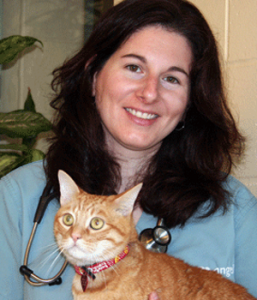-
Adopt
-
Veterinary Care
Services
Client Information
- What to Expect – Angell Boston
- Client Rights and Responsibilities
- Payments / Financial Assistance
- Pharmacy
- Client Policies
- Our Doctors
- Grief Support / Counseling
- Directions and Parking
- Helpful “How-to” Pet Care
Online Payments
Emergency: Boston
Emergency: Waltham
Poison Control Hotline
-
Programs & Resources
- Careers
-
Donate Now
angell.org/generalmedicine
617-522-7282
“Kennel cough”, otherwise known as infectious tracheobronchitis (ITB), is a highly contagious illness in dogs that causes inflammation of the trachea and bronchi (tubes that carry air to the lungs). Infected dogs usually have a harsh, hacking cough that people interpret as the dog trying to clear something out of its throat. The dog may cough up foamy white phlegm, especially after exercise or pulling against a collar. Often the illness is mild and self-limiting, causing an annoying cough for a week or two, but not really impacting the dog’s energy level or appetite. However, ITB can progress to life-threatening pneumonia.
Kennel cough infection occurs when a dog inhales bacteria and/or viruses that have been shed in the respiratory secretions of a sick dog. There are many different infectious agents responsible for kennel cough, and infections with more than one of the following agents often occur concurrently:
- Bordetella bronchiseptica
- Parainfluenza virus
- Adenovirus type 2
- Canine distemper virus
- Canine influenza virus
- Canine herpesvirus
- Mycoplasma canis
- Canine reovirus
Dogs typically become infected after spending time in enclosed areas with a lot of other dogs – boarding and grooming facilities, shelters, obedience classes, dog shows, etc. It takes between 2-14 days for an exposed dog to start showing symptoms, and the illness usually lasts 1-3 weeks. Dogs specifically infected with Bordetella bronchiseptica may continue to shed the bacteria for 2-3 months. If your dog has been diagnosed with kennel cough, please discuss with your veterinarian how long you should keep him or her away from other dogs in order to prevent further spread of the disease.
Some of the organisms implicated in kennel cough, such as distemper and influenza viruses, are more likely to lead to pneumonia than others. However, young, stressed, or immunocompromised dogs may develop pneumonia from any of these agents. Therefore, any dog exhibiting a cough along with lethargy, poor appetite, nasal discharge, or fever should be evaluated for pneumonia. Often, no treatment is necessary for uncomplicated kennel cough, but antibiotics against Bordetella may be prescribed because this bacterial organism often secondarily infects dogs that are already compromised by one of the aforementioned viruses. Cough suppressants are sometimes used to provide symptomatic relief (so both owner and dog can get some sleep!). It may also be helpful to use a harness rather than a collar to avoid putting pressure on the inflamed tissues in the throat.
Vaccinations against Bordetella bronchiseptica, canine adenovirus type 2, canine parainfluenza virus, canine distemper, and canine influenza are currently available, but infection with other members of the kennel cough complex cannot be prevented via immunization. The distemper vaccine (DHPP), which is routinely administered to almost all dogs, protects against canine adenovirus type 2, canine parainfluenza virus, and canine distemper. There are separate vaccines available for protection against influenza and Bordetella bronchiseptica. The Bordetella vaccine does not always prevent infection, but it can minimize symptoms. It should be given at least 5 days before a dog is placed in a high-risk situation (boarding, grooming, etc.) and should be boostered every 6-12 months. Vaccination is not a useful treatment for a dog already infected with kennel cough.
Any dog with a new cough should be evaluated by a veterinarian. The vet will perform a physical exam in order to determine the underlying cause of the cough and then decide if diagnostics (x-rays, blood tests, etc.) and/or medical treatments are necessary. The good news is that the majority of dogs with kennel cough will not become seriously ill and will quickly make a complete recovery.
For information about Angell’s General Medicine service, please visit www.angell.org/generalmedicine or call 617-522-7282.
